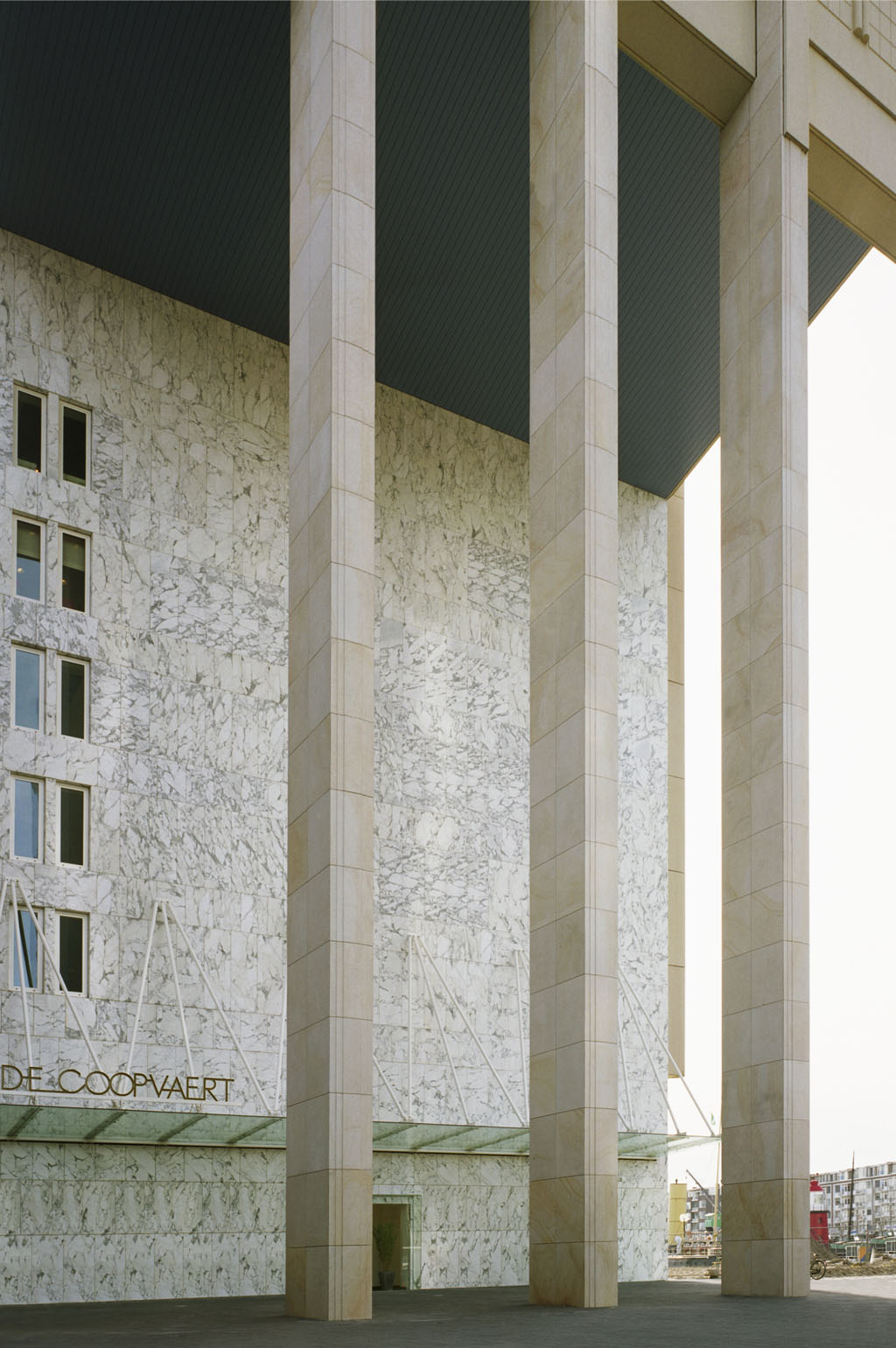15-01-10 // ROTTERDAM IS A WHORE – INTERVIEW WITH ANDRE KEMPE

“De Coopvaert”, a residential/ office tower in the centre of Rotterdam, photo: Bas Princen, ©Bas Princen
Beatriz Ramo and Bernd Upmeyer spoke on behalf of MONU with Andre Kempe. Andre is one of the principals of the Rotterdam-based architecure office Atelier Kempe Thill.
Bernd Upmeyer: How can we understand the process of how a plot of land is being developed in Rotterdam?
Andre Kempe: Usually, as an architect, you are asked by a developer, who is your client and then there is the city planning department, which takes care of the urban space of the city, checking the correct heights of the buildings, etc., and then there is also the OBR 1 in Rotterdam that is selling the land. The OBR is a very important factor in the development as they influence the prices that are charged for the land to the developers, which then influences the amount of money that the investors can spend on the quality of the building. The question of how much money goes towards the land and how much towards the building is always subject to crucial negotiations.
Beatriz Ramo: Does the OBR still have an influence on the development after they have sold the land? Who sets the rules?
AK: In our projects until now we have had the experience that the real selling took place when the project was fixed. The price of the land is always related to the number of houses and their size, in so far the real agreement came at the end of a longer negotiation process. With regard to urban rules, there are usually different planning instruments. Most important is the so called “bestemmingsplan” that defines the parameters of a building, its height, size, amount of stories, percentage of built surface etc. Sometimes this plan does not yet exist. In that case the size of the building is negotiable and has to be defined in consultation with the municipality. If the agreement with the developer is not yet fixed the city could ask for more quality, if investors have made deals in advance the municipality has – of course – a less strong position in these negotiations. Important in this is also that municipality companies like the OBR fix the land price according to the amount of houses that are to be developed. If a developer builds more houses the OBR can charge a higher price. In that sense, the OBR doesn’t necessarily have exactly the same agenda as the urban planning department…
…the complete interview was published in MONU #12 on the topic of Real Urbanism on January 15, 2010.
Title: Rotterdam is a Whore
Project: Interview with Andre Kempe
Date: January 2010
Type: Commissioned interview
Topic: Real Urbanism
Organizer: MONU
Status: Published
Publications: MONU #12, P.122-129
Interviewer: Beatriz Ramo, Bernd Upmeyer